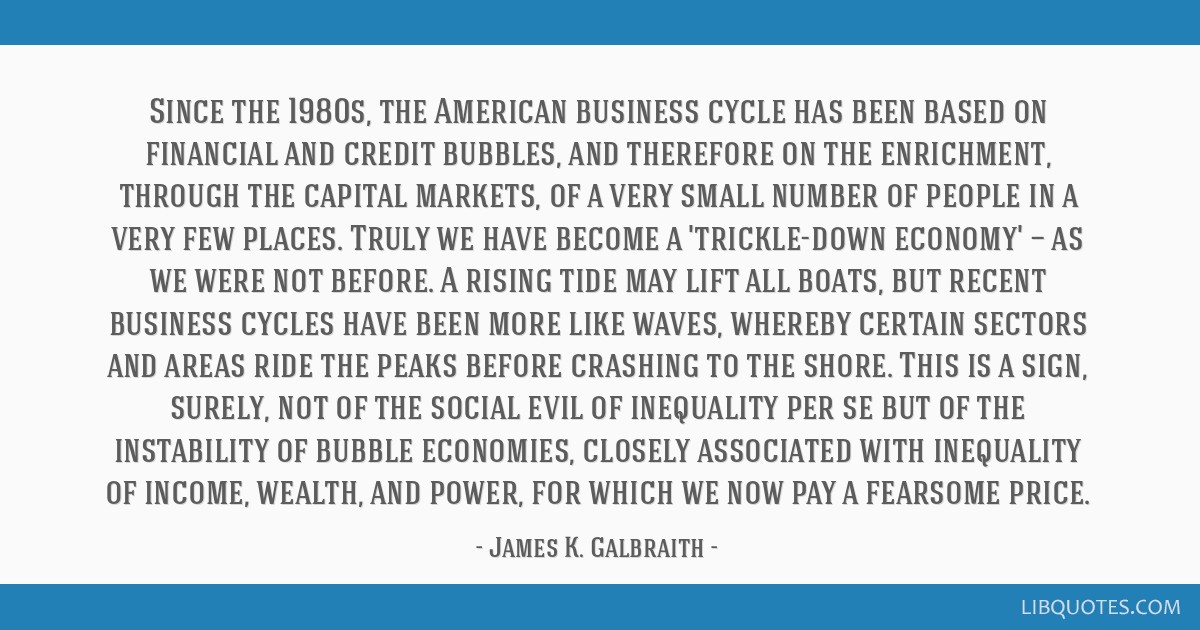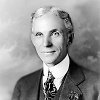Since the 1980s, the American business cycle has been based on financial and credit bubbles, and therefore on the enrichment, through the capital markets, of a very small number of people in a very few places. Truly we have become a 'trickle-down economy' — as we were not before. A rising tide may lift all boats, but recent business cycles have been more like waves, whereby certain sectors and areas ride the peaks before crashing to the shore. This is a sign, surely, not of the social evil of inequality per se but of the instability of bubble economies, closely associated with inequality of income, wealth, and power, for which we now pay a fearsome price.
James K. Galbraith (2012), Inequality and Instability: A Study of the World Economy. p. 148; Cite in: "Muddling Towards the Next Crisis: James Kenneth Galbraith in conversation with The Straddler" at thestraddler.com, Winter 2013.























